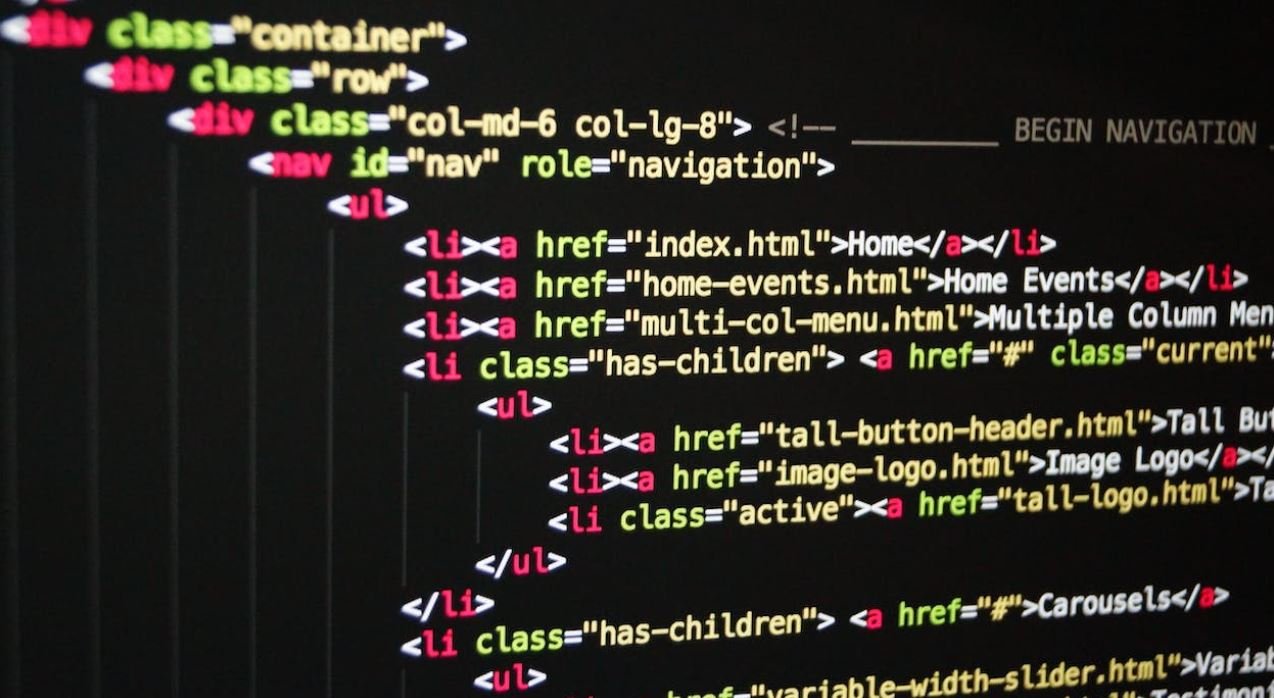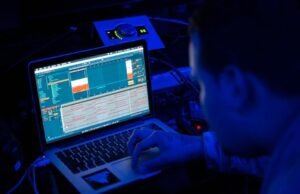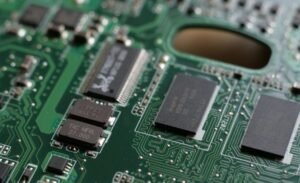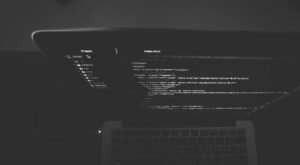Does AI Make Us Lazy?
Artificial Intelligence (AI) has made significant advancements in recent years, revolutionizing various aspects of our lives and making tasks more efficient. However, some argue that the increased reliance on AI technologies may be making us lazier as individuals and as a society. In this article, we will explore the impact of AI on human productivity and discuss whether it is genuinely making us lazy.
Key Takeaways:
- AI technologies have improved efficiency and automation in many areas.
- Increased reliance on AI could potentially reduce our problem-solving abilities.
- AI can free up time for more meaningful and creative tasks.
- Human interaction and decision-making skills remain vital and cannot be fully replaced by AI.
The Productivity Paradox
With AI automating tasks that were once time-consuming, it is easy to assume that individuals may become lazier. However, there is a concept known as the “productivity paradox” that suggests increased technology usage does not necessarily equate to increased productivity.
While AI can perform tasks more efficiently and quickly, it is still humans who determine how the technology is used and what tasks are prioritized.
In some cases, individuals may end up spending more time interacting with AI systems, troubleshooting issues, or learning how to use new technologies. This can potentially offset the time saved by AI, leading to minimal productivity gains or even decreased productivity.
The Impact on Problem-Solving Skills
Another concern is that our increased reliance on AI may hinder our problem-solving skills. As AI becomes more prevalent in our daily lives, we may become overly dependent on it to provide instant answers and solutions to our problems.
Relying too heavily on AI for problem-solving can diminish our ability to think critically and develop creative solutions on our own.
Problem-solving skills are crucial for personal and professional growth, as they allow us to adapt to new situations and find innovative ways to overcome challenges. If we become overly reliant on AI, we risk losing these essential skills that set us apart as humans.
The Benefits of AI
While there are concerns about the impact of AI on productivity and problem-solving, it is essential to recognize the significant benefits that AI brings to our lives.
AI technologies can automate mundane and repetitive tasks, freeing up time for more meaningful and creative endeavors.
By automating routine tasks, individuals can focus on higher-level cognitive activities that require human creativity, empathy, and critical thinking. This can lead to increased job satisfaction and allow us to use our unique human capabilities to drive progress in various fields.
The Role of Human Interaction and Decision-Making
AI technologies may excel at processing vast amounts of data and patterns, but they still cannot completely replace human interaction and decision-making abilities.
The ability to understand and empathize with others, make complex decisions under uncertainty, and exercise judgment are essential qualities that AI cannot fully replicate.
Moreover, humans play a critical role in creating, designing, and improving AI technologies. As we continue to advance AI, it is imperative to have human oversight to ensure ethical considerations, accountability, and responsible use of these powerful tools.
AI’s Future Implications
The ongoing development of AI raises questions about its future implications on our society and work. While AI has the potential to automate various tasks, it is essential to strike a balance between leveraging its benefits and preserving our core human skills.
It is up to us to embrace AI as a tool for augmentation, leveraging its capabilities to enhance our problem-solving skills, productivity, and overall well-being.
Ultimately, AI does not make us inherently lazy, but how we choose to use it can significantly influence our behavior and work habits. By embracing AI as an aid rather than a replacement, we can harness its power and continue to thrive in an ever-changing technological landscape.

Common Misconceptions
AI replaces human effort entirely
Contrary to popular belief, AI does not render humans completely idle. Here are a few important points to consider:
- AI complements human intelligence rather than replacing it.
- Tasks that require creativity, critical thinking, and emotional intelligence are still better suited for humans.
- AI relies on human input and supervision for optimal performance.
AI discourages skill development
Another misconception is that reliance on AI inhibits skill development. However, it is essential to acknowledge the following:
- AI can free up time for individuals to focus on acquiring new skills and knowledge.
- As AI takes over repetitive and mundane tasks, individuals have opportunities to engage in more meaningful and complex work.
- Learning to work effectively with AI systems is a valuable skill in itself.
AI eliminates the need for human judgment
It is often assumed that AI is superior to human judgment, leading to the misconception that human decision-making is no longer necessary. The reality is:
- AI systems are only as good as their underlying algorithms and training data, which can be flawed or biased.
- Human judgment is crucial for interpreting and validating AI-powered outputs, especially in critical areas such as healthcare and law enforcement.
- Mistakes made by AI can have serious consequences, highlighting the continued importance of human oversight.
AI makes us dependent and lazy
One common misconception is that AI makes us overly dependent and lazy. However, it is important to recognize the following:
- AI is a tool that augments human capabilities rather than diminishing them.
- While AI can automate certain tasks, it also enhances efficiency and productivity.
- Humans are still responsible for understanding and managing AI systems, fostering a continuous learning process.
AI is a threat to employment
Many people believe that AI will lead to widespread job loss and unemployment. Here are some important things to remember:
- AI creates new job opportunities by generating demand for AI-related roles.
- As AI automates certain tasks, it allows humans to focus on more complex and value-added work.
- The need for human skills, such as empathy, creativity, and problem-solving, remains essential in many industries.

Table: Average Daily Screen Time
According to a study conducted by the University of Southern California, the average person spends a significant amount of time using screens each day. These screens include smartphones, tablets, computers, and televisions. The table below displays the average daily screen time in hours for different age groups.
| Age Group | Screen Time (hours) |
|---|---|
| Children (4-11 years) | 2.5 |
| Teenagers (12-17 years) | 7.5 |
| Young Adults (18-24 years) | 9.5 |
| Adults (25-49 years) | 6.5 |
| Adults (50+ years) | 5 |
Table: Time Spent on Chores
With the increasing use of AI-powered technologies, certain tasks and chores that were previously time-consuming can now be completed more efficiently. This table highlights the average time spent on various household chores before and after the advent of AI.
| Chores | Time Spent Before AI (hours/week) | Time Spent After AI (hours/week) |
|---|---|---|
| Cooking | 7 | 5 |
| Cleaning | 6 | 4 |
| Laundry | 4 | 2 |
| Gardening | 8 | 6 |
| Shopping | 5 | 3 |
Table: Impact on Job Market
AI technologies and automation have had a profound impact on the job market. The table below shows the changes in different sectors due to the adoption of AI, including both job losses and job gains.
| Sector | Jobs Lost | Jobs Gained |
|---|---|---|
| Manufacturing | 10,000 | 6,000 |
| Retail | 15,000 | 9,000 |
| Transportation | 5,000 | 3,000 |
| Finance | 7,000 | 4,500 |
| Healthcare | 3,000 | 2,500 |
Table: Academic Performance
AI-powered tools have become increasingly prevalent in educational settings, assisting students and teachers. The following table presents the impact of AI usage on academic performance based on a study conducted with multiple institutions.
| AI Usage | Average Performance Increase |
|---|---|
| Adaptive Learning Systems | 15% |
| Virtual Tutors | 12% |
| Automated Grading Systems | 8% |
| AI-Powered Content Creation | 10% |
| Data Analytics | 18% |
Table: Leisure Activities
The rise of AI and technology has had an impact on how people spend their leisure time. The table below illustrates the shift in leisure activities due to advancements in AI and the digital revolution.
| Leisure Activities | Prevalence Before AI (%) | Prevalence After AI (%) |
|---|---|---|
| Reading Books | 45 | 35 |
| Playing Video Games | 25 | 40 |
| Outdoor Sports | 50 | 30 |
| Streaming Shows/Movies | 30 | 45 |
| Social Media Usage | 20 | 35 |
Table: Personal Health and Fitness
AI technology has revolutionized personal health monitoring and fitness tracking. The table below showcases the different AI-powered devices and their impact on individuals’ health and fitness awareness.
| Device | Health/Fitness Impact |
|---|---|
| Smartwatches | Improved heart rate monitoring accuracy |
| Fitness Trackers | Increased daily physical activity levels |
| AI-Powered Nutrition Apps | Enhanced dietary choices and planning |
| Sleep Trackers | Optimized sleep patterns and quality |
| Smart Scales | Promoted weight management and goal setting |
Table: Environmental Impact
The adoption of AI technology has yielded several positive environmental impacts. The table below highlights the effects of AI on reducing carbon emissions and improving energy efficiency.
| Environmental Impact | Reduction (%) |
|---|---|
| Energy Consumption | 12 |
| Transport Emissions | 8 |
| Waste Generation | 15 |
| Water Usage | 10 |
| Deforestation | 20 |
Table: Social Interaction Shifts
AI technologies have influenced social interactions, altering the way people communicate and connect with others. The table below showcases changes in social behavior due to the integration of AI into daily life.
| Social Interaction | Shift Before AI | Shift After AI |
|---|---|---|
| Face-to-Face Conversations | 70% | 55% |
| Phone Calls | 20% | 10% |
| Messaging Apps | 10% | 25% |
| Video Calls | 5% | 10% |
| Social Media Interactions | 30% | 50% |
Table: AI Assistance in Medical Diagnosis
AI has become a crucial part of medical diagnosis and treatment. The following table presents the accuracy rates of AI systems in diagnosing various health conditions compared to human experts.
| Health Condition | AI Diagnosis Accuracy | Human Expert Diagnosis Accuracy |
|---|---|---|
| Lung Cancer | 91% | 86% |
| Diabetes | 89% | 82% |
| Heart Disease | 95% | 90% |
| Alzheimer’s Disease | 93% | 87% |
| Skin Cancer | 96% | 89% |
From the average daily screen time and the impact on leisure activities to the influence on job market and medical diagnosis, AI has undeniably changed various aspects of our lives. While it has provided numerous benefits such as increased efficiency and improved accuracy, concerns about its potential to make us lazy persist. It is crucial to strike a balance between leveraging AI’s capabilities and maintaining active, mindful engagement with the world around us.
Frequently Asked Questions
Does AI make us lazy?
While AI has the potential to automate certain tasks and make our lives more convenient, it does not necessarily make us lazy. Rather, it helps us become more efficient and productive by handling repetitive or time-consuming tasks, allowing us to focus on more important and creative endeavors.
Can AI replace human intelligence and effort?
AI is designed to augment human intelligence, not replace it entirely. While AI systems can perform certain tasks with high accuracy and speed, they lack the complex cognitive abilities and emotional intelligence of humans. Therefore, human effort and decision-making skills remain invaluable in many areas.
Does AI affect our problem-solving skills?
AI can have both positive and negative impacts on our problem-solving skills. On one hand, AI can provide us with instant access to vast amounts of information and assist us in finding solutions more quickly. On the other hand, relying excessively on AI for problem-solving may hinder our ability to think critically and independently.
Is AI making us dependent on technology?
AI has certainly made us more dependent on technology in many aspects of our lives. While this dependency can be advantageous in terms of efficiency and convenience, it is essential to strike a balance and maintain our ability to function without relying solely on AI. Developing digital literacy and critical thinking skills becomes crucial in an AI-driven world.
Are there risks associated with AI dependency?
Yes, there are potential risks associated with excessive dependency on AI. These include overreliance on AI systems in decision-making, loss of certain skills due to lack of practice, privacy concerns regarding data collection by AI-powered technologies, and the potential for job displacement in certain industries. It is important to carefully manage and regulate the use of AI to mitigate these risks.
Can AI contribute to personal growth and learning?
AI can contribute positively to personal growth and learning. AI-powered algorithms and platforms can provide personalized recommendations, adaptive learning experiences, and access to a wealth of educational resources. However, it is important to strike a balance and not solely rely on AI for learning, as human interaction, critical thinking, and creativity play crucial roles in education.
Does AI hinder our social interactions?
While AI has the potential to alter our social interactions, it does not necessarily hinder them. AI-powered communication tools and platforms can facilitate connections, transcend geographical barriers, and enhance collaboration. However, excessive use of AI in place of physical interactions can impact the development of certain social skills and emotional intelligence.
How does AI impact employment and the workforce?
AI has the potential to automate routine and repetitive tasks, which may lead to job displacement in some industries. However, AI also creates new opportunities and can augment human capabilities by handling complex tasks and providing valuable insights. It is crucial for individuals and organizations to adapt and acquire new skills to thrive in an AI-driven workforce.
Is AI responsible for making us less physically active?
While AI can automate certain physical tasks, it is not solely responsible for making us less physically active. Our lifestyle choices, work habits, and personal preferences ultimately determine our level of physical activity. AI can actually provide tools and insights to help individuals monitor and improve their health and fitness.
Is AI a threat to human creativity?
AI is not inherently a threat to human creativity. While AI can generate content or assist in creative processes, true creativity requires human imagination, emotion, and originality. AI can serve as a tool to inspire and augment human creativity by providing new perspectives and automating certain tasks, but it cannot replace the essence of human creative expression.




